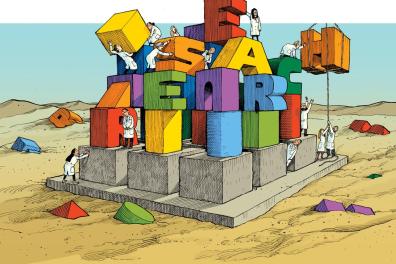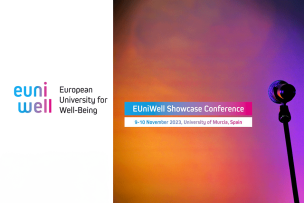“Tell Us About Your Research” - Mastering Oral Science Communication (Research Training Academy)

Presenting oneself and one’s research work is crucial for any scientist. Whether it’s in lab meetings, at conferences, engaging with media, public officials, or the general public, knowing how to communicate your research work compellingly is key.
This 3-day training is designed to equip PhD students from 2nd year with the essential skills for delivering powerful oral presentations. It covers a broad range of topics, from understanding your audience and crafting visual aids to managing anxiety and handling questions. Through practical exercises with video recordings, you’ll work on your ability to communicate your research clearly and effectively.
Training objectives
By participating in this training, you will:
- Learn to develop an audience-driven introduction to pique interest.
- Master storytelling techniques to structure your presentation.
- Acquire delivery methods to effectively showcase your data.
- Gain tips to improve your body language.
- Lear strategies for overcoming stage fright and managing stress.
- Develop techniques for addressing difficult audience questions while maintaining confidence and even having fun.
Content
- Understanding your Audience
- Planning and Structuring your Presentation
- Crafting and Organising Visual Aids
- Managing Anxiety, Enhancing Voice & Delivery
- Handling Questions Effectively
Day 1: Begins with a focus on the scientist’s approach to preparing and delivering research presentations at scientific conferences, introducing a method for structured narrative development.
Day 2: Shifts to the perspective of science journalism, teaching how to distil key messages into compelling pitches, engaging the audience, and designing clear, memorable slides.
Day 3: Consolidates learning through filmed exercises, playback sessions for feedback, and focuses special attention on voice, delivery and managing presentation nerves. The day concludes with each participant delivering a refined presentation based on the workshop’s insights.
Teaching Methods
The training will be provided in English. This training emphasises active participation, combining informative lectures with practical exercises, group discussions, and individual tasks. Participants are encouraged to bring and present their own research, applying the course’s insights directly to their work. Participants will leave with not only a deeper understanding for oral science communication, but also with resources including video recordings of their presentations and a suite of supporting materials for further practice.
Dates
- Group 1: Tue 21 May 9 :00-16 :00 CEST / 8:00-15:00 BST AND Tue 28 May 9 :00-16 :00 CEST / 8:00-15:00 BST AND Tue 04 June 9 :00-16 :00 CEST / 8:00-15:00 BST
- Group 2: Wed 22 May 9 :00-16 :00 CEST / 8:00-15:00 BST AND Wed 29 May 9 :00-16 :00 CEST / 8:00-15:00 BST AND Wed 05 June 9 :00-16 :00 CEST / 8:00-15:00 BST
Duration: 18h (3 days)
Trainer
Gabriele Hess-Fernandez, senior science journalist, editor-in-chief and university lecturer, Nantes Université
Application process
Please apply via the following link: https://questionnaires.univ-nantes.fr/index.php/226163?lang=en
Application deadline: 10 May 2024
Candidates may only apply if they can attend on all 3 dates.
Only 16 spots are available for this training. Please note that the workshop has a limited number of spots. Each EUniWell university has an equal number of seats and applications are accepted on a first-come, first-served basis. If registrations exceed capacity, a waiting list may be implemented. In any case, you will be informed whether you are on the main list or on the waiting list.
To join the training, participants will need to accept the trainer’s invitation and log into the provided Google Classroom link. The trainer will upload presentations and working materials to Classroom before and during the training. If a participant cannot log in by using their university email address, they can try with a Gmail account. If they have any difficulties, they are encouraged to reach out to the organising team as soon as possible.
Further information
This workshop is part of the Research Training Academy under the EUniWell #Research project which receives funding from the European Union’s Horizon 2020 research and innovation programme under grant agreement No 101035821.
Contact
For more information about this training, please contact the Nantes Université team: euniwell[at]univ-nantes.fr


